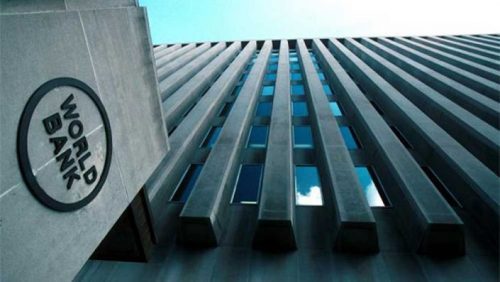The World Bank Group said on Tuesday that it would continue to support Nigeria toward boosting the literacy rate especially among school-age children.
Dr Olatunde Adekola, the Senior Education Specialist, African Region of the World Bank, made this known in a sideline interview with the News Agency of Nigeria (NAN) at the ongoing 10th Pan African Literacy for all Conference, Abuja 2017.
NAN reports that the conference was organised by the Reading Association of Nigeria (RAN) with support from the International Literacy Association, and the Federal Ministry of Education, among others.
“World Bank is more than 100 per cent in support of what RAN is doing. We believe in this effort and for the World Bank, we will continue to support the country to enhance literacy.
“This is because literacy is a critical determinant of a country’s economy, growth, development and standard of living of the people.
“There is need for concrete action to strengthen the literacy systems, policies, structures and the desire for the achievement of sustainable development goals.
“There is need to think through holistic approach to providing inclusive and equitable quality education at all levels especially for the vulnerable groups and particularly, the girl child,” Adekola said.
The World Bank official added that it had inaugurated a one-million dollar project to enhance literacy in the northern parts of the country.
According to him, the project is a global partnership for education tagged ‘Nigeria Partnership for Education’.
He said: “It is carried out by the World Bank and other development partners such as USAID, UNICEF and DFID in the North West of the country.
“The focus of the project is first, to strengthen the government systems to deliver basic education for the children by improving the basic education service delivery especially at the early primary level.
“The second focus is to improve both the supply side and the demand side of education in particular for girls.’’
The education specialist noted that it was not enough to enrol children in school, as they would also need to be provided with the right type of learning environment to ensure proper learning.
He said the project involved “Conditional Cash Transfer” whereby girls would be given scholarships to enrol in school and study for three years at the primary school level.
“We also give scholarship to teachers who do not have the National Certificate of Education so that in the next three years they can attend College of Education and obtain the certificate.
“We also provide materials. All these are to make sure that we improve literacy and numeracy at a very early stage of their education, especially in the first three years.
“The project has a life span of four years. We are almost two years into it now.
“We still have about two more years and the outcome is very good because we are now seeing more girls in school.
“Nevertheless, we need partnerships, collaboration and cooperation between and within state and non-state actors to address the issue of literacy as a tool for problem-solving.
“However, we will continue to support the country to enhance the literacy level in the country,” he explained.
Adekola, who is also the Task Team Leader for the Global Partnership for Education in Nigeria, the conference would focus more on literacy, reading, language and learning issues.
He stated that the idea is to ensure that children become familiar with the language in which they will be taught as a step toward improving their literacy.



Leave a Reply